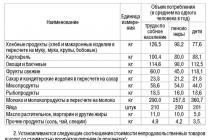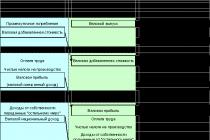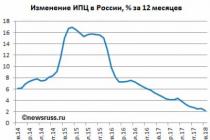The changes that have taken place over the past decades in the economy, as well as in the politics of Russia, left the Russians no choice - in order to live normally in the new conditions, they had, willy-nilly, to master the basics of financial literacy. Today, being financially literate has become a necessity for almost every member of society in order to be able to correctly assess the situation in the market, benefit from it, and make the right decisions.
The financial education of people in Russia today, unfortunately, is at a rather low level. Only a small part of the population is able to navigate the financial sector and its products.
The basics of financial literacy are not studied in schools, they are not taught in universities, except for specialized ones. In some institutions, there are timid attempts to introduce such a subject, however, such a phenomenon has not received mass distribution. Diverse programs in the regions related to improving the financial literacy of the population do not give significant results. Therefore, it makes sense to think about how to solve this problem by doing it yourself.
The Importance of Economic Literacy
Possessing necessary knowledge in the economy and in the field of finance, a person has the opportunity to competently, with benefit for himself, use his own savings and financial resources in general. financial literacy allows you to fully account for funds, avoid unnecessary spending, as well as debts, teaches you how to plan a budget, which is important for its preservation. The habit of spending more money than you can afford becomes one of the causes of poverty. In addition, knowing the basics of financial literacy, the inhabitants of the country can easily navigate the various monetary intricacies that the economic environment offers today, accumulate and insure their own money.
Also, the general level of education of Russians will be largely influenced by the economic situation of the country. The fight against financial ignorance is important both for each person and for the state as a whole. The implementation of software developments related to the achievement of people's education is becoming a key moment in the position of the state, and not only for Russian Federation, but also for most developed countries. Education will help reduce risk personal debts of the population on consumer loans, as well as the risks associated with fraudulent actions of market participants.

Uncontrolled loans coupled with consumer loans undermine the family and personal well-being of citizens, carrying a potential social danger. Therefore, at present, financial literacy is especially relevant in the areas of insurance relations, bank deposits (deposits), money transfers, including Internet banking services, loans (loans), virtual currencies, investment of money in housing construction, securities, shares investment funds and the funded part of pensions. What is financial literacy? The concept of financial literacy refers to the ability of the population to:
- effectively manage their own finances;
- keep records of expenses, as well as income and carry out long-term and short-term financial planning;
- be able to optimize the ratio between consumption and savings;
- understand the intricacies of financial products, as well as services (the securities market, collective investments), as well as have up-to-date data on the situation that is developing in the financial markets;
- reasonably make decisions in relation to financial products, as well as services and bear conscious responsibility for them;
- competently plan and implement pension savings.
Read also: CJSC and OJSC: what is the difference
There are two key points characteristic of a financially literate person.

Ways to improve financial literacy
There are several ways to improve financial literacy. You can use one of the above methods, but it is better to use several at once.
- Do like me. It is not necessary to learn from doctors economic sciences. Much more benefit will be from master classes of existing professionals who have spent a huge amount of time on direct study practical issues. To become a successful entrepreneur, you need to learn from a businessman, a marketer from marketers, a writer from a writer, and so on.
- Selfeducation. If there are no opportunities to contact directly with specialists in the chosen direction, or there is a desire to use several sources of knowledge at once, then you can use a huge number of articles, along with videos, training programs, along with lessons on the Web. In addition, this method is a good opportunity to save money and time. It is only worth remembering that much on the Web is outright nonsense that has nothing to do with reality. However, there are also good materials, sometimes absolutely unique.
- Learning by doing. Financial literacy is a rather unexplored industry, which appeared relatively recently. Therefore, new laws and regulations are constantly being brought to light, so a great way to achieve personal success is to become a pioneer. It will not be possible to go far solely on the knowledge of others, and in any case, you will have to develop the ability to analyze information, supplementing the experience learned from professionals with your own developments, constantly improving.
Sections: Technology , Economy
I. Explanatory note on the subject "Fundamentals of financial literacy"
The work program of the subject "Fundamentals of financial literacy" was compiled in accordance with the teaching materials of V.V. Chumachenko "Fundamentals of financial literacy", as well as in accordance with the following documents:
1. the federal law dated December 29, 2012 No. 273-FZ “On Education in the Russian Federation”.
2. The project of the Ministry of Finance of Russia “Promotion of increasing the level of financial literacy of the population and development financial education In Russian federation". Information about the Project is available on the official website of the Russian Ministry of Finance: http://www.minfin.ru/ru/om/fingram/
3. The concept of the National program to improve the level of financial literacy of the population of the Russian Federation http://www.misbfm.ru/node/11143.
4. Strategy for the development of the financial market of the Russian Federation for the period up to 2020 http://www.ippnou.ru/lenta.php?idarticle=005586 .
5. Main educational program secondary general education MBOU "Gymnasium No. 3".
6. Regulations on work program subjects, courses of extracurricular activities MBOU "Gymnasium No. 3" dated 08/30/2018.
Increasing financial literacy is one of the main areas of formation investment resource, indicated in the Concept of long-term socio-economic development of the Russian Federation for the period up to 2020.
The relevance of the Fundamentals of Financial Literacy program is dictated by the development financial system and the emergence of a wide range of new sophisticated financial products and services that challenge citizens for which they are not always prepared.
Therefore, the introduction of the course "Fundamentals of Financial Literacy" helps to create conditions for the development of a teenager's personality, motivation for learning, for the formation of social and professional self-determination, and is also a prevention of antisocial behavior. It is the mastery of the basics of financial literacy that will help students apply the acquired knowledge in life and successfully socialize in society.
Ensuring the implementation of the Federal State Educational Standards of the new generation and the availability of quality education for students of all categories, our gymnasium creates conditions for obtaining additional economic education, including its applied aspects - financial literacy, the basics of consumer knowledge in high school as part of elective courses.
The content of the program significantly expands and supplements the knowledge of high school students about personal finance, home accounting management, functioning stock market and the banking system, and the implementation of creative work, practical tasks will allow adolescents to gain experience in accepting economic decisions in the field of personal finance management, improve their professional competence in the future, apply the acquired knowledge in real life.
In addition, tasks with financial and economic content are included in the materials of the final certification for the course of the main school of the Unified State Examination.
The novelty of this program is the focus of the course on the formation of financial literacy of high school students based on building a direct link between the knowledge gained and their practical application, understanding and use of financial information at the moment and in long term and focuses on the formation of responsibility in adolescents for financial decisions, taking into account personal safety and well-being.
Distinctive feature program of the subject "Fundamentals of financial literacy" is that it is based on a system-activity approach to learning, which provides an active educational and cognitive position of students. They form not only basic knowledge in the financial sector, but also the necessary skills, competencies, personal characteristics and attitudes in accordance with the latest generation of the Federal State Educational Standard.
Program goal: formation of key competencies of high school students for making rational financial decisions in the field of personal finance management.
Program objectives:
Create comfortable conditions conducive to the formation of communicative competencies;
To form a positive motivational attitude towards the economy through the development of cognitive interest and awareness of social necessity;
To study the regulatory and methodological documents of the Ministry of Education and Science to improve the level of financial literacy and financial and economic education of students;
Master the system of knowledge about financial institutions modern society and personal finance management tools;
Master the ability to receive and critically comprehend economic information, analyze, systematize the data obtained;
To form experience in applying knowledge about financial institutions for effective self-realization in the field of personal finance management;
To form students' readiness to make responsible and informed decisions in the field of personal finance management, the ability to implement these decisions;
Form the foundations of culture and individual style of economic behavior, business ethics values;
Cultivate responsibility for economic decisions.
II. General characteristics of the subject "Fundamentals of Financial Literacy"
To achieve the set goals and taking into account the foregoing, the organization of classes is based, first of all, on pedagogical technologies based on the cooperation and co-creation of participants educational process, critical analysis of the information received various types, activity technologies, design and research activities, gaming technology.
In the classroom, students are engaged in various types of cognitive activities, learn to think creatively and solve problems. practice-oriented economic tasks.
Since the teaching method is a generalizing model of the interconnected activity of the teacher and students and it determines the nature (type) of students' cognitive activity, the teaching methods are implemented in the following forms of work:
- Business games.
- Use of technical training aids, Internet resources.
- Working with sources of economic information.
- Tool analysis financial markets, the economic situation in individual markets and in the region.
- Interactive technologies.
- Group, frontal and individual work.
- Excursions.
III. Description of the place of the subject "Fundamentals of Financial Literacy" in the curriculum
This program is designed for students in grade 10.
The work program is designed for 35 hours per year (1 hour per week).
IV. Planned development results subject "Fundamentals of financial literacy"
Structure and content of the subject « Fundamentals of financial literacy» » suggest that students should acquire practical skills for planning and evaluating their own economic action in the field of management family budget, personal finance.
During the academic year, high school students demonstrate general project skills: plan and implement project activities; prioritize goals based on values and life plans; independently implement, control and carry out correction of their activities on the basis of preliminary planning; use available resources to achieve goals; apply all the necessary variety of information and knowledge, skills and competencies obtained as a result of training for goal setting, planning and implementation of an individual project.
Planned learning outcomes
Subject Results the study of this subject is the acquisition by schoolchildren of competencies in the field of financial literacy, which are of great importance for the subsequent integration of the individual into the modern banking and financial environment. In addition, the study of the course forms the skills of high school students to make competent and informed financial decisions, which will ultimately help them achieve financial independence and business success.
Metasubject results - the development of analytical abilities, decision-making skills based on a comparative analysis of savings alternatives, planning and forecasting future income and expenses of the personal budget, management skills.
personal results studying the course is the education of motivation to work, the desire to build one's future on the basis of goal-setting and planning, responsibility for the present and future of one's own financial well-being, the well-being of one's family and the state.
In this way, as a result of studying in this subject the graduate will learn:
Make rational financial decisions in the field of personal finance management;
Conduct timely financial analysis;
Set strategic goals to achieve personal financial goals;
Plan and predict future income and expenses of the personal budget;
Determine the directions of interaction of citizens with the stock and currency markets;
Basics of interaction with credit institutions;
Basic concepts and tools for interaction with participants in financial relations;
Fundamentals of Management tax payments in order to reduce tax expenses in compliance with tax discipline;
Choose insurance products and insurance companies;
Make investment decisions from the position of minimizing financial risks;
Create a personal financial plan.
Graduate will have the opportunity to learn:
In cooperation with the teacher, set new learning objectives;
Recognize the principles of functioning of the financial system of the modern state;
Understand personal responsibility for decisions made in the process of interaction with financial institutions;
Understand the rights and obligations in the field of finance;
Possess communication skills;
Analyze and interpret financial information from different sources;
Define tasks in the field of personal finance management;
Find sources of information to solve financial problems;
Collaborate with peers and adults in educational and research activities;
Form your own financial strategy;
Solve financial problems;
Show cognitive initiative in educational cooperation;
Independently take into account the guidelines of action allocated by the teacher in the new educational material;
To carry out ascertaining and anticipatory control on the result and on the method of action, actual control at the level of voluntary attention;
Independently evaluate the correctness of the performance of the action and make the necessary adjustments to the performance both in the course of its implementation and at the end of the action.
V. The content of the program of the subject "Fundamentals of financial literacy" (35 hours)
Personal financial planning (11 hours).
Introduction to the course. Brief description of the course being studied. Formation of the concept of human capital. Formation of knowledge about the application of human capital.
Making decisions about personal finance. Definition of goals, selection of alternatives.
Assets and liabilities. Income and expenses. Drawing up a current and prospective personal financial budget. Main sources of income. Typical levels of income and expenses during a person's lifetime. Compilation of a current personal financial plan.
Personal financial planning. Strategy and tactics in the financial game.
A lesson-lecture, a lesson in discovering new knowledge, a lesson in updating knowledge, a combined lesson, a lesson-generalizations, a lesson - a business game, creative work.
Main activities.
Know the role of the subject "Fundamentals of financial literacy", the concept of "human capital", "money", their functions. Be able to explain what consumption is, what are the main sources of income, recognize your assets and liabilities, be able to keep track of them. Know how to budget, be able to optimize costs. Be able to develop a strategy to achieve your goals, create a personal financial plan to achieve your goals. Be able to work in a team, strive for cooperation.
Deposit (7 hours).
Savings, inflation, causes of inflation, calculation of inflation. Deposit. Risk assessment. Interest on deposits. Advantages and disadvantages of a deposit. Conditions and content of the deposit. Nominal rate, real rate, deposit agreement. Kinds bank deposits. banks, bank deposits, financial risks.
Forms of organization of training sessions.
Lesson - discovery of new knowledge, lesson of updating knowledge, combined lesson, lesson - generalization of knowledge.
Main activities.
Know the concepts of accumulation and inflation, the causes of inflation. Calculate inflation.
Know the concept of a deposit. Be able to give your own assessment of risks, know how to calculate interest on deposits. Be able to characterize the features of the deposit in Russia. Know how to calculate interest on deposits. Be able to calculate simple and compound interest on a deposit, give examples of types of bank deposits, be creative in creative work.
Credit (7 hours).
The concept of credit. Familiarity with the main characteristics of the loan. Benefits of choosing a loan Credit cost. Calculations to reduce the cost of credit. Common Mistakes when using a loan.
Forms of organization of training sessions.
Lesson - the discovery of new knowledge, a lesson on updating knowledge, a combined lesson, a lesson - generalizations, creative work.
Main activities.
Know the concept of "credit", its characteristics. Know Required documents when applying for a loan. Learn to analyze and compare loan conditions in various banks. Be able to characterize the features of a loan in Russia, give your own examples of the rights and obligations of a borrower, evaluate the studied phenomenon, and be creative in creative work.
Settlement and cash transactions (7 hours).
Banking system, economic situations. Acquaintance with the choice of a bank card. Kinds bank cards(debit and credit). banking profit. The main types of bank interest. Plastic cards. ATMs, mobile banks. Application plastic cards in settlements and payments, the difference between debit and credit cards. Storage exchange and money transfer. Different kinds means of payment. forms of remote banking service. Repetition of the studied block. Excursion to the bank.
Forms of organization of training sessions.
Lesson - the discovery of new knowledge, a lesson on updating knowledge, a combined lesson, a lesson - generalizations, a lesson-excursion.
Main activities.
Know the concept of "Banking system", functions central bank. Be able to solve cognitive and practical tasks reflecting typical economic situations. Know the types of bank cards. Understand what the mechanism is banking profit. Be able to characterize the main types of bank interest. Know the rules for using ATMs, mobile banks, online banks.
Repetition of the studied (3 hours).
Personal financial planning, deposit, credit, settlement and cash operations. Strategy and tactics in the business game "Golden Crown".
Forms of organization of training sessions.
The lesson is a business game, a lesson of generalization of knowledge.
Main activities.
To be able to put into practice the knowledge gained in the lessons on the subject "Fundamentals of financial literacy", develop a strategy and tactics in a team game, show creativity, initiative.
VI. Description of the educational and methodological package for the subject "Fundamentals of financial literacy"
- V.V. Chumachenko. Fundamentals of financial literacy. Tutorial. - M .: Education, 2018
- V.V. Chumachenko. Fundamentals of financial literacy. Guidelines. - M .: Education, 2018
- V.V. Chumachenko. Fundamentals of financial literacy. Workbook. - M .: Education, 2018
Internet resources for student and teacher
VII. Calendar and thematic planning of the subject "Fundamentals of financial literacy"
| No. p / p | Lesson topic |
Number of hours |
Scheduled lesson date |
Actual date of the lesson |
|
Personal financial planning (11 hours) |
|||||
Acquaintance with the course "OFG" |
|||||
Human capital and success |
|||||
Making Personal Finance Decisions |
|||||
home bookkeeping. Assets and liabilities |
|||||
Home bookkeeping. Income and expenses |
|||||
Drawing up a personal financial plan |
|||||
Creative work "Drawing up a personal plan" |
|||||
Business game "My strategy" |
|||||
Deposit (7 hours) |
|||||
Savings and inflation |
|||||
What is a deposit and what is its nature? |
|||||
Deposit terms |
|||||
Deposit risk management |
|||||
Repetition of what was learned in the "Deposit" block |
|||||
Credit (7 hours) |
|||||
What is a loan? |
|||||
Main characteristics of the loan |
|||||
How to choose the best loan |
|||||
How to reduce the cost of a loan |
|||||
Typical mistakes when using a loan |
|||||
Creative work "Case" |
|||||
Settlement and cash operations (7 hours) |
|||||
Storage, exchange and transfer of money |
|||||
Different types of payment means | |||||
Project stage:
Project implemented
Objective of the project:
Creation of the foundations for the formation of financially literate behavior of the population as a necessary condition for improving the level and quality of life of citizens, including through the use of financial products and services of appropriate quality.
Project objectives:
Organization of events for students of educational institutions;
- liquidation of financial illiteracy of the population of the city;
- attraction of specialists in the field of banking, accounting, finance and economics to cooperation;
- creation of a platform for the development of business ideas of student youth;
- organization of themed weeks.
Results achieved in the last year:
Availability of information from competent specialists in the field of finance, banking. economics and entrepreneurship;
- prevention of financial errors and clarification current situation on the market;
- introduction of thrift skills in conditions of resource saving;
- training and involvement in the process of eliminating financial illiteracy of teachers of educational institutions and senior students;
- providing new opportunities for increasing knowledge to the general population, as well as to interested specialized structural divisions organizations;
- assistance in promoting and implementing youth entrepreneurial initiatives.
Social significance of the project:
AT modern conditions expanding the use financial services, complication and the emergence of new and difficult to understand financial instruments issues of financial literacy of the population
have become extremely relevant for most countries of the world. Ensuring personal financial security is becoming an important factor economic well-being of the people.
In many countries of the world, awareness of the need to increase the financial literacy of the population has led to the formation of national financial education strategies or programs.
The main factors of their formation are:
economic crisis, during which the relevance of
rational use financial resources with a clear decline
the cost of savings;
complication of financial services offered on the market;
discrepancy between the financial knowledge of the population and the dynamically changing financial market.
In addition, in a period of instability and little predictability of the development of financial markets, the importance of getting the public access to reliable and reliable information about
financial services and protect their rights as consumers of financial services.
Approximately 60 countries are already developing or implementing national financial literacy strategies. Each state sets a specific goal and defines the expected end results
in developing such a strategy.
In many countries, national financial literacy strategies target all financial consumers and aim to reach the widest possible segment of the population. However,
priority target groups are identified. As the analysis of international experience shows, most often preference is given to students of general educational organizations and educational institutions.
organizations of higher education, the working population, citizens of pre-retirement and retirement age.
Activities carried out within the framework of the project:
Quiz for schoolchildren "Financial literacy" - September 2016, September 2017 (up to 70 participants in 2 years)
- Master class "Financial educational program or what we should know about money in the 21st century" - December 2016 (60 participants)
- Open lecture hall " Nobel laureates- March 2017 (65 participants)
- Day of the financier in the branch "Kotelniki" - September 2017 (150 participants)
- Lecture hall "Basic principles of international coaching" together with Professor, Doctor of Economics, Israeli scientist Goldman Natalya Dmitrievna - October 2017 (70 participants)
- Open seminar "Lessons of Thrift". timed to coincide with the end of the year of ecology in Russia - November 2017 (40 participants)
- Workshop " Informational resources to ensure activities financial structures organizations" together with the media company "Aktion-MTsFER" and the information portal "Glavbukh" with subsequent testing and presentation of certificates to participants - December 2017 (30 participants)
- conclusion of an agreement between the branch "Kotelniki" and the media company "Aktion-MCFER" on the creation on the basis of educational institution center for advanced training of accountants and specialists in the field of finance - March 2018
- organization and holding, together with the department of economics, support for small and medium-sized businesses, the competition of business projects "My start up" - April-May 2018 (more than 100 participants)
Project scope:
Students of senior classes of educational institutions, students of secondary vocational and higher education, residents of the city of Kotelniki and surrounding areas.
Resources spent:
1.5 years (the project continues its work)
Project start date:
Puganovskaya Tamara Ivanovna author Sharenkov Sergey Alekseevich Abdukarimov Nurillo Khairullaevich Aleshina Anna Alexandrovna Afanasyeva Tatyana Anatolyevna Golikova Tatyana Yurievna Platonova Alla Mikhailovna Orlov Nikolai Nikolaevich Pavlikova Tatyana Alexandrovna
Financially literate people are people who have a sufficient level of knowledge and skills in the field of managing money. It allows you to give correct assessments of the situation and make appropriate decisions. Consider the basics of financial literacy of the population in this article.
Financial literacy of the population: problems and prospects
Financial literacy includes the ability of citizens to manage their own. They are aware of the responsibility for the decisions they make. Such knowledge can be mastered without much difficulty. Basic information on the topic "fundamentals of financial literacy" is available in the specialized literature. Lectures and seminars are held. How to take the first steps, as well as what is the importance of financial literacy, we will consider further.
Decree of the Government of the Russian Federation of September 25, 2017 No. 2039-r On the approval of the Strategy for improving financial literacy in the Russian Federation for 2017-2023
The appearance of this government document aims to consider that the relevance of the development of financial literacy among the population takes place. This is especially important internationally. The factors that serve as the basis for the emergence of the strategy are:
- the possibility of crises;
- complication of financial products;
- discrepancy between the knowledge of the population and the dynamics of the market;
- ensuring universal access to information.
The Order sets out the state of the level of financial literacy and sets the goals of the strategy. It also indicates directions for the implementation of tasks.

The impact of financial literacy on the level of material well-being
Raising the level of financial literacy of the population is facilitated by familiarity with the main monetary concepts skills to apply them in life. Criteria for assessing financial literacy suggest that a person who properly manages his funds:
- does not allow large debts;
- plans;
- makes savings.
Financial literacy refers to the ability of people to navigate financial products, no matter how complex they may be. They consciously acquire them. Citizens with skills and theoretical knowledge can correctly apply insurance and accumulation tools. The government promotes the level of financial literacy of the population.
Informing the public about financial literacy issues and ways to protect the rights of consumers of financial services
Most residents of the Russian Federation manage money according to recommendations, and not by analyzing the available information. Financial literacy training is also required in terms of consumer rights when using monetary products. Many do not know how to protect them, they need assistance to improve the level of financial literacy of the population.
So families should be aware of the banks about effective rates on loans. And also about the availability of protection from the state in case of loss of money in investment funds. At the same time, about 30% of the population believes that the state will compensate for the losses incurred due to the lack of their personal responsibility. All these aspects require improving the financial literacy of the population.
The work of the financial literacy program
Financial literacy of the population and its level is reflected in the economy of the state. The insufficiency of this sphere entails Negative consequences for society. Why financial literacy is needed, shows a decrease in the risks of non-payment of loans, the number of cases of fraud, dishonesty.
Methodological support for improving financial literacy
There are websites on the Internet designed to improve the financial literacy of the population.
- Finagram answers a lot of questions on economics. The Banking Association of the Russian Federation also formed Fingram TV, where they teach money literacy from scratch.
- The Visa payment system has created the ABC of Finance project for the population of the Russian Federation.
- Banki.ru is the largest resource of the Russian Federation in the field of the banking system. There is a section "Banking Glossary" with an explanation of terms and recommendations.
- Methodological materials on financial literacy are also available on the City of Finance portal, formed under the federal program.
Cooperation with financial institutions
The relationship with the banking system in practice also implements the basics of financial literacy. Such organizations are very interested in clients who serve themselves, and also recommend it to their friends. Under such circumstances, they are partners with people making savings.
Priority target populations
It is believed that the financial literacy of the population in the Russian Federation is low in terms of level. Not many people can navigate in money, services. Criteria for assessing financial literacy were derived on the basis of monitoring. The results show that not everyone understands the principles of deposit insurance, uses bank cards. Only 11% have clear ideas about how to secure their old age.
Government Decree No. 2039-r dated September 25, 2017 indicates the strategy for improving financial literacy. The target groups are:
- development potential of the Russian Federation;
- average income and below, risk group;
- retirement age and people who find it difficult to improve financial literacy for health reasons.
Financial Literacy Courses
The financial literacy of young people and persons of any other age can be improved in courses conducted in a paid and free form. Such events are organized at universities and through private initiatives, educational and methodological programs. The Internet provides a variety of resources on the topic: the basics of financial literacy:
- introduction to seminars;
- attending lectures online;
- training to acquire the necessary skills, teaching them;
- courses, video tutorials:
- other .
Classes on the Internet are often conducted in such a way that a person does not need to leave home. Almost everyone has the opportunity to master the basic rules of financial literacy.
Formation of financial literacy of schoolchildren in the course of studying Russian literature
Is it possible to obtain the required information in literary works? Most likely yes. Some books contain in their plots a description of the right habits in relation to money. As well as methods to increase financial ingenuity and experience in the successful disposal of funds.

Preparing citizens for life in old age
The federal program includes the development of strategies that will improve the financial literacy of people of retirement and pre-retirement age. Thus, in the Government Decree on the strategy, low awareness of the population about the protection of rights under social benefits was noted. Tasks include:
- formation of competent behavior in people;
- the importance of financial literacy - developing the ability of citizens to plan their funds;
- formation of mechanisms of interaction with the state.
The meaning and necessity of financial literacy for a modern person
A financially literate person is distinguished by the fact that he is not inclined to make rash decisions that can have a deplorable effect on well-being. He is usually in writing, for which he sometimes uses programs. The basics of economic literacy presuppose the obligatory presence of the ability for such control.
At the same time, the disposal of cash brings benefits, not losses.
It is possible not only to stabilize the level of one's well-being, but also to increase it. From this we can conclude: not so much those who have large earnings are called successful, but those who consciously spend. Such people usually make the right investments.
What financial literacy skills should everyone have?
You can indicate the following signs of the presence or absence of literacy in the management of their income.
- The illiterate can acquire the worthless loan product imposed on him spontaneously. Such people participate in the pyramids. A sign of literacy is to realize your capabilities and refrain from reckless scams.
- The illiterate do not get the effect of profit from their investments, they can make a mistake when choosing pension funds. At this time, it is more correct to find the necessary economic information.
- A person may not see his advantages in the market. But if you invest carefully, you will need a list of all the options that you should certainly explore.
The negative result is a decrease. But a competent person finds means to put them aside in case of unforeseen circumstances. Everyone needs to accumulate. For illiteracy will have a detrimental effect on the future life in the form of consequences.
Reading special literature on the basics and principles of financial literacy
You can acquire the knowledge of an economically literate person by reading books containing the necessary information. For example, "How to be always with money" P. Bagryantseva contains a number of practical tips that are not mentioned in ordinary educational institutions. The author shares personal experience their financial achievements.
It will not be difficult to choose a teaching method from the many offered. The main rules of financial literacy, as well as various subtleties in relation to money, can be comprehended in the following sources.
- Works on economics.
- E-books about the secrets of financial psychology and similar topics.
Sources of books on acquiring financial literacy for modern living standards - stores and the Internet. The most popular book by R. Kiyosaki contributes to learning "Rich dad, poor dad". It deals with the application of the concepts of assets and liabilities. The former bring money, rich people acquire it. The second only spends money.
Successful millionaires contribute to raising the level of financial awareness of people, for which they provide recommendations, advice, share experience in the form of exact numbers. Another popular book that raises the level of financial literacy is written by B. Schaeffer. Its name - "The Path to Financial Freedom". The content includes a description of undertakings in business, investments and monetary relationships, the rules for managing funds.
Attending seminars, courses and webinars to improve financial literacy
R. Kiyosaki's training "Rich Dad, Poor Dad" is recommended for all beginners to master economic and financial literacy. After reviewing this course, you can learn to look at money differently, as a wealthy person sees it. R. Kiyosaki's statement is that this literacy factor includes the following.
- Acquaintance with tax code at the level of understanding.
- Knowledge of accounting theory and practice.
- Elementary Compilation Skill.
- Acquired concept of what money is and how to manage it.
You can learn from R. Kiyosaki in just a few weeks. A successful student is able not only to increase the level of financial literacy, but also to improve the acquired skills in practice. Many practically rest with the help of economic games provided by the Internet.
Develop good financial habits
The basic rules of financial literacy are not limited to the fact that a person saves money from every earnings. It is also necessary:
- to master the basics of macro - and microeconomics;
- have an idea about credit institutions;
- be able to put in front of you, as well as fulfill them.
Such foundations of personal economic development are applicable as criteria for assessing financial literacy. The following methods will help you develop good habits.
- Personal control Money, the use of auxiliary programs.
- Eliminate costs that don't make sense.
- Allocation of the main expenses ( communal payments, food), organizing the distribution of funds.
- Postponement 10%.
- Allocating part of your own for investment, increasing funds.
- Strategy for increasing financial literacy, improving skills.
- Acquaintance with changes in the legislation of the Russian Federation.
- Taking into account the provision of one's old age.
Relevance is the correct investment of funds. An example is the creation of a passive contribution that brings benefits, but is not related to the main activity. A feature is the formation of several sources to ensure it, which reduces the risk of monetary losses.
Promotion is also the practical application of acquired skills and knowledge. At the same time, it is not necessary to significantly change your own, quit your job. Additional income you can have without going to formal business. Namely, on assets, to distribute money correctly. In this case, the main income will not be lost.
Everyone is obliged to learn the truth that it is a person who manages money, and not they manage it. Personal economic development is hampered by senseless acquisitions, making an imaginary status, spending. In this case, the likelihood of achieving prosperity is reduced.
In conditions market economy, given its ups and downs, for each person it is important to ensure personal financial security. Society understands these realities, so the state should create programs that increase the level of financial literacy of Russians.
Why raise?
Basically the future Russian economy defines youth. That is why increasing their education in the field of money management is of particular importance. The solution to this problem is possible only with the close cooperation of the state with commercial and financial institutions, institutions in the field of education and public organizations who can influence the development of this process in their field.
More than a third of the country's residents have not taken bank loans at all over the past few years, fearing a sharp drop in money inflation.
Based on the above, it turns out that most Russians manage their funds without the right approach and expert advice. All monetary issues are resolved at home over a cup of tea with friends. Which, just like the owners, are not particularly versed in the intricacies of decisions.
The country's market economy, however, does not stand still, but rather moves forward at a rapid pace. The knowledge of people remains at the old level and is not added, which becomes critical for the country itself and its economy as a whole.
Lack of understanding of these problems by society pushes the country's leadership to extreme measures. by all possible ways improve the education of the people.

What is being done for this?
Propaganda directed at the smart spending of the population's funds is being carried out. On learning skills correctly deals with.
Conduct training seminars aimed at gaining knowledge in the field banking services. The ability to understand securities and their profitability.
The work of the financial literacy program
Special centers teach people how not to succumb to the tricks of scammers, how to secure their deposits in banking structures how to make profit with pension payments and much more.
It is designed for all age categories of the population and is taught even in schools where there are special elective subjects for teaching children. Naturally, at school, only the basics of everything that children have to learn at an older age are served.
In universities, a lot of lectures are also given to achieve the proper level of knowledge in this area. Wherein economic university works with his wards in the most detail on the subtleties of banking and money decisions. This is done to improve.
On the way to the implementation of the program, monitoring groups have also been created to monitor changes in knowledge financial sphere people. And although the results are still deplorable, work is being done in all possible directions.
All media are connected. Television is engaged in showing social videos that encourage people to listen and explain the need for such knowledge. Newspapers and handouts spell out the position currency markets. Publishing houses are engaged in printed matter, which describes all the main points of knowledge of this science.
In addition, all regional governments are connected. They hold master classes for entrepreneurs and people starting their own business. Ways to avoid them are also considered. Experienced people in financial matters come to such meetings.

Pensioners receive intelligible information in pension funds. In a word, there is a comprehensive informative load on the population. In order to reach their mind as quickly as possible and involve them in learning the skills of money issues.
The adult population within the framework of the program is taught the skill in various structures and in various ways that they bring profit.
When will the program bring the desired effect?
And although the program began its work in 2009, people still refuse to trust the system, believing that they are being deceived again. Abroad, such freedoms have been used for a long time, which is probably why their population is much more educated in money matters. We are still lagging behind and showing weakness in this.
However, I would like to hope that in the near future the program will give positive results and Russia as a country will become more educated in terms of the economy of the population. Today, such a program is also being introduced in Ukraine, but it is likely that it will face the same difficulties with its acceptance by the population as in our country.
Basically, the programs are aimed at improving the education of the younger generation. If you rely exclusively on young people, the program will effectively work only in 15-20 years. Then this already adult generation will independently teach their children financial literacy, and having good knowledge in this area.














